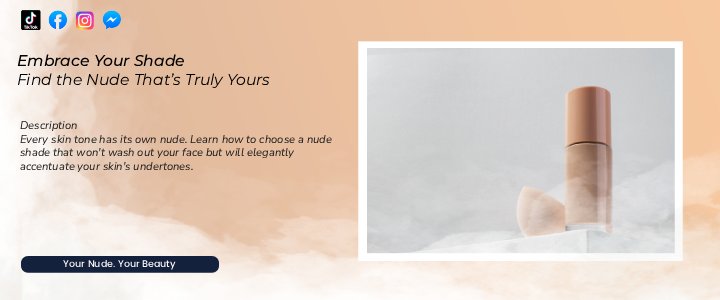Skincare Lifestyle: Beyond Creams and Serums
When most people think of anti-aging, the first image that comes to mind is usually a jar of cream or a powerful serum. While these products play an important role, dermatologists and wellness experts agree that a true skincare lifestyle goes far beyond what you apply to your face.
Factors like sleep, nutrition, and stress levels shape how your skin looks and feels every single day. In fact, your daily choices may influence your skin’s resilience more than the most expensive anti-aging product on your shelf. Let’s take a closer look at how lifestyle directly connects with skin health—and how you can adjust your routine for better long-term results.
The Power of Sleep in a Skincare Lifestyle
We’ve all heard the term “beauty sleep,” but it’s more than just a phrase. During sleep, your body enters repair mode, producing collagen and repairing cellular damage caused by sun exposure, pollution, and stress. Without enough rest, these processes are cut short.
- How Lack of Sleep Affects Skin
- Dark circles and puffy eyes appear more pronounced.
- Skin becomes dull due to reduced blood flow.
- Fine lines deepen because collagen repair is interrupted.
Practical Sleep Tips for Better Skin
- Aim for 7–9 hours: Consistency matters more than occasional catch-up sleep.
- Create a wind-down routine: Reading, meditation, or light stretching helps signal your body it’s time to rest.
- Avoid blue light before bed: Excess screen time can reduce melatonin production and make falling asleep harder.
A solid sleep routine doesn’t just improve your energy—it supports your skin’s natural ability to renew itself.
Nutrition: Feeding Your Skin from the Inside
What you put on your plate is just as important as what you put on your skin. Nutrition plays a huge role in an effective skincare lifestyle, because your skin relies on vitamins, minerals, and antioxidants to function at its best.
Foods That Support Anti-Aging
- Fatty Fish (like salmon or sardines): Rich in omega-3 fatty acids that reduce inflammation and dryness.
- Colorful Fruits and Vegetables: Blueberries, spinach, and carrots are loaded with antioxidants that fight free radical damage.
- Nuts and Seeds: Almonds and sunflower seeds are excellent sources of vitamin E, which helps protect skin cells.
- Green Tea: Contains polyphenols that help calm inflammation and may slow signs of aging.
Foods to Limit
- Excess Sugar: Can trigger glycation, a process that weakens collagen and elastin.
- Highly Processed Snacks: Often packed with unhealthy fats and sodium that lead to puffiness and breakouts.
- Alcohol: Dehydrates the skin and reduces elasticity over time.
Think of food as part of your daily skincare investment. A nutrient-rich diet not only supports your health but also provides the building blocks for smoother, more radiant skin.
Stress Management: The Overlooked Skincare Habit
Stress may feel like an invisible factor, but it has visible effects on your skin. Elevated cortisol (the stress hormone) increases oil production, weakens the barrier, and can speed up wrinkle formation. This is why dermatologists often see flare-ups of acne, eczema, or rosacea during high-stress periods.
Stress-Reducing Practices That Help Your Skin
- Mindful Breathing or Meditation: Just 10 minutes a day can lower cortisol levels.
- Regular Exercise: Boosts circulation and helps skin receive more oxygen and nutrients.
- Journaling or Creative Outlets: Writing or artistic activities can help release tension.
By addressing stress as part of your skincare lifestyle, you not only improve your mental well-being but also give your skin a calmer, healthier environment to thrive.
Building a Balanced Skincare Lifestyle
Combining sleep, nutrition, and stress management with your regular skincare products creates a powerful holistic approach. It’s not about perfection—it’s about making consistent choices that support both your health and your complexion.
- Quick Daily Checklist
- Did I get at least 7 hours of quality sleep?
- Have I eaten colorful, whole foods today?
- Did I take 10 minutes to slow down and manage stress?
- Am I applying sunscreen before heading outside?
These simple questions act as reminders that anti-aging is not just about surface-level care but about aligning your overall lifestyle with your skin’s natural needs.
A true skincare lifestyle means recognizing that your skin reflects the way you live. High-quality products can certainly enhance your routine, but their impact multiplies when combined with proper sleep, balanced nutrition, and effective stress management.
By making small, intentional changes in your daily habits, you create the foundation for healthier skin—not just today, but for years to come. The secret isn’t in a single miracle cream; it’s in building a life that supports your skin from the inside out.



